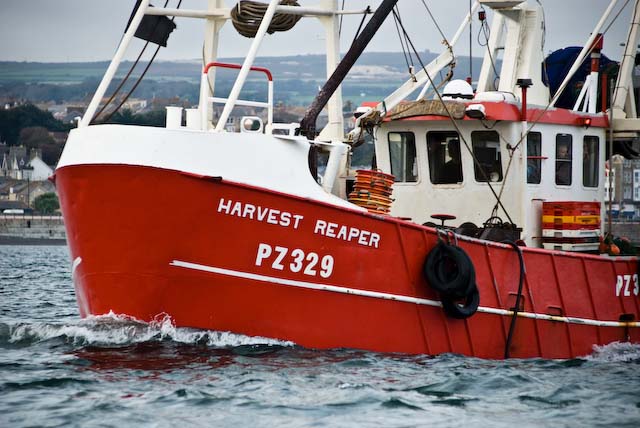Fisheries Minister, Richard Benyon MP, launched Project Inshore a year ago on June 8th 2012, World Oceans Day. He welcomed today’s report saying: “England’s inshore fisheries are important to coastal communities and the seas around us. This detailed report provides useful insight to help the Government, as well as fishermen and local authorities realise the next steps toward full sustainability across the board and work together to achieve it. This is a fantastic position to be in as we look ahead to implementing a reformed Common Fisheries Policy and delivering on our commitment to achieve Good Environmental Status for our seas by 2020. That’s good news for the seas and good news for the communities that depend upon them.”
Good news for sole, herring, cockles… and cod
While the report held few surprises for many species, there are several species that are considered ready to enter an MSC assessment in their current state. Those fisheries highlighted as showing good practice include trammel net caught sole in the Western Channel, North Sea herring caught by drift net and Thames Estuary cockle for example.
Cod stocks in the North Sea – often perceived as a species to avoid – continue to show a strong recovery and are now close to a level where they could meet the MSC Standard. The report shows that strong management measures have made a positive impact and that – once stocks have reached the required levels – all other areas of the fisheries are ready to enter an MSC full assessment.
In contrast, red gurnard – often a favourite among those encouraging consumers to choose alternative species – fared less well in the report. A shortage of data about fish stocks and limited management of catches mean that there is an urgent case for investment to improve our understanding of this fishery. While a shortage of data doesn’t mean that the fisheries are inherently unsustainable, that data will be increasingly important as the species gains in popularity and catches increase.
The report goes further, taking a broad look at the impact that English inshore fisheries have on the marine environment. These ecosystem impacts show numerous examples of good local management that is helping to ensure that other marine species of flora and fauna are not adversely affected by fishing. The report also highlights fisheries where not enough is known about these impacts due to a lack of data. By assessing all inshore fisheries at once the report seeks to highlight good practice and share lessons learned, building a strong ecological case for new investment.
“Project Inshore is timely and it’s been an exciting year to this point” said Paul Williams, CEO of Seafish “Whilst none of the fisheries are required to move forward to realising MSC certification, it has been an appropriate, impartial way to help us benchmark the fisheries and develop sustainability plans. We are looking forward to working with the fisheries on the next phase”.
“There’s been a significant interest in under-utilised species over the past few years.” says the MSC’s Claire Pescod, who chairs the project’s Advisory Group,“When those fish suddenly become commercially popular, we need to put a lot more effort into providing the appropriate information for their management to make sure that they are managed sustainably. In many cases there are gaps in the understanding of the fishery that will need to be filled. This report highlights best practice in England’s inshore fleet but also illustrates a huge need for investment in our inshore fisheries, a fleet that has provided fish for generations. By investing in the science behind these fisheries, we are working towards not only sustainable fisheries but also sustainable livelihoods and communities for generations to come.”
Later this year Project Inshore will release a final report giving inshore fisheries a coordinated set of sustainability recommendations. This will allow fishermen, managers, policy makers, NGOs and industry to work together in a focussed and targeted way to deliver improvements across the country. By launching today’s report, Project Inshore has laid the groundwork towards a multi-stakeholder effort to ensure healthy English fisheries
